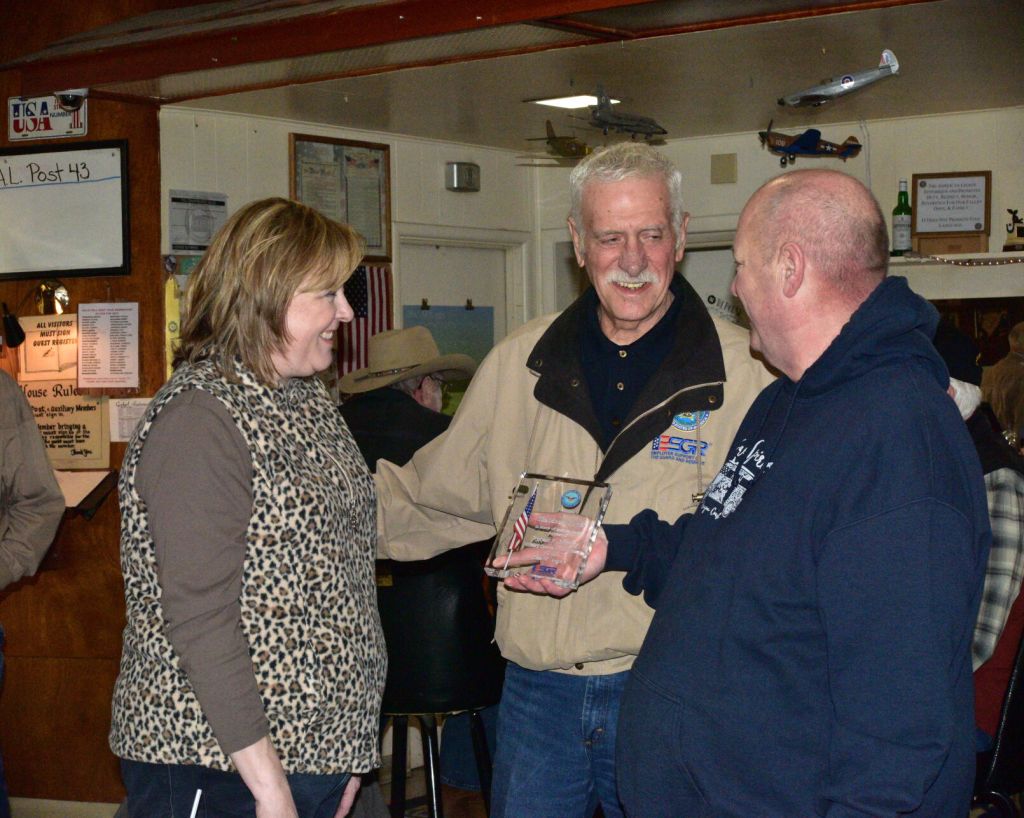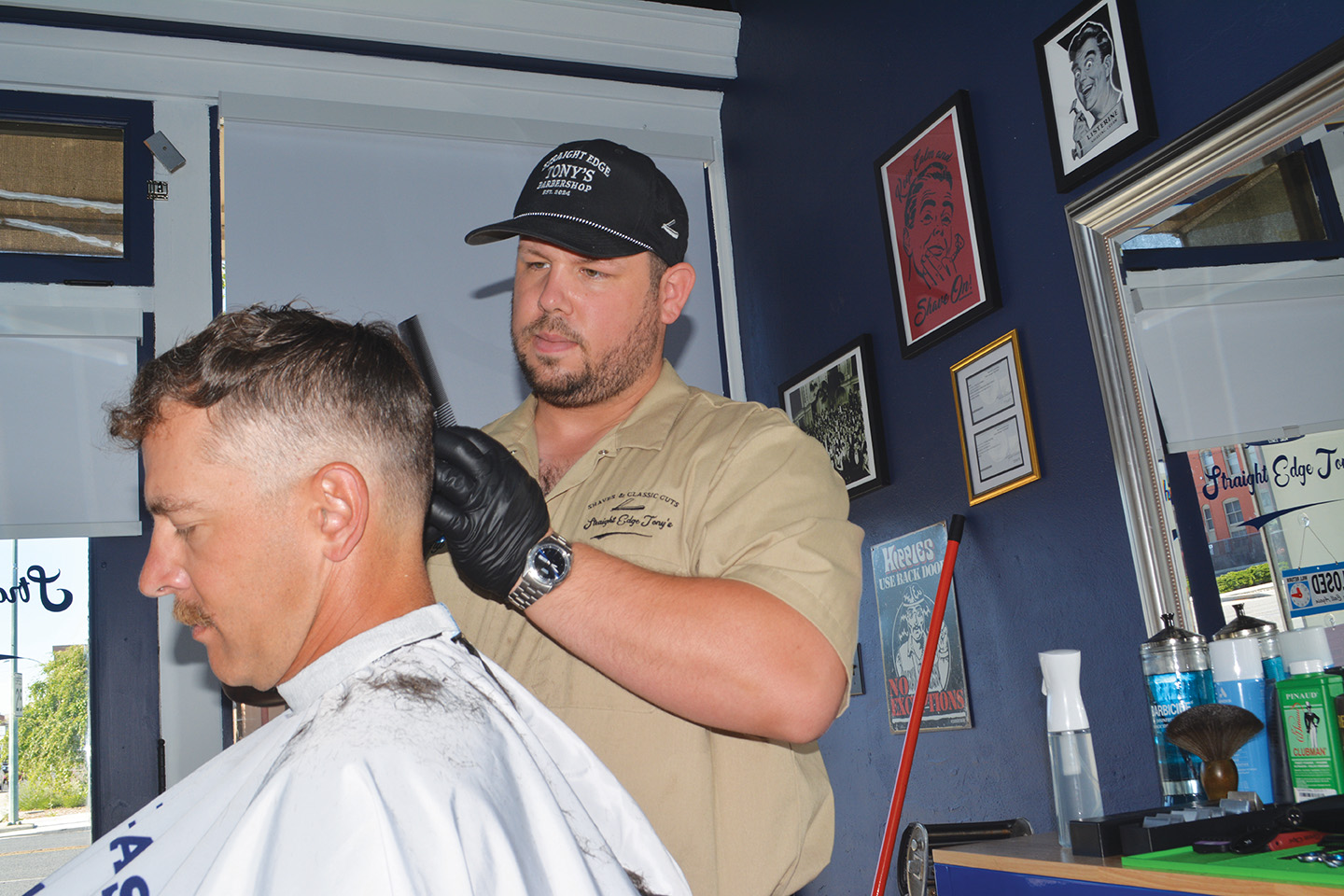Putting the National Guard in a position to succeed
Published 7:00 pm Monday, August 28, 2023

- Jack Johnson, center, talks with Barb Moody, left, and Ken Moody, children of the late Bob Moody, after they accepted a Twice the Citizens Award from the Employer Support of the Guard and Reserve on behalf of their father on Thursday, Jan. 26, 2023. Johnson, of Cove, is chair of Area 6 of the ESGR Oregon Committee.
LA GRANDE — Static-free lines of communication are going a long way toward helping members of the Oregon National Guard continue to have solid relationships with their employers.
“We want employers to have a good understanding of the rights of employees who are in the National Guard,” said John Troike, the employer outreach director for the Employer Support of the Guard and Reserve program in Oregon.
The role of the Employer Support of the Guard and Reserve was discussed by Troike and Jim Cunningham, chair of the program in Oregon, on Friday, Aug. 25, at a luncheon at the Blue Mountain Conference Center in La Grande. The intent of the ESGR, a Department of Defense office, is to maintain support of the National Guard and military reserve by encouraging employers to act as advocates for employee participation in the military.
Cunningham said the relationships between National Guardsmen and their employers in Oregon are some of the strongest in the United States because of the efforts of the Employer Support of the Guard and Reserve program. He said this is evident in a number of ways — for example, it is very unusual for an issue between a National Guard soldier and his or her employer to have to be resolved in court.
“We have not had to go to court for several years,” he said.
Troike credits the work of those who have served as ombudsman for the Employer Support of the Guard and Reserve program. The ombudsmen do an exceptional job of making sure employers understand the rights that employees who are in the National Guard have via the Uniformed Services Employment and Reemployment Rights Act, a federal law passed in 1994 that protects military service members and veterans from employment discrimination on the basis of their service and allows them to regain their civilian jobs following a period of service in the military.
“We want employers to know what to expect,” Troike said.
The law spells out things like how many days soldiers in the National Guard have to return to their job following a deployment and still be guaranteed employment. For example, soldiers who have been gone more than six months have a longer time to report back to their employers than those who were away for 30 days.
Troike said in small communities like La Grande it is often less likely that there will be misunderstandings between employers and employees in the National Guard because in small towns people know each other so well.
While there are additional laws employers must adhere to after hiring someone in the National Guard, there are a number of built-in pluses, Cunningham said, adding that employers are assured the employee isn’t a user of illegal substances.
“You don’t have to worry about giving a drug test because if you can’t pass a drug test, you can’t be in the National Guard,” he said.
Cunningham also said National Guardsmen have a reputation for being responsible and professional.
“They are super reliable,” he said.
The timing of the talks by Troike and Cunningham were ideal because the week of Aug. 20-26 was National Employer Support of the Guard and Reserve Week. Troike and Cunnngham were also in La Grande to meet Maj. Christopher Miller, the new commander of La Grande’s National Guard unit, the 3rd Battalion, 116th Cavalry, according to Jack Johnson, of Cove, the chair of ESGR’s Area 6.
Miller took the reins of the National Guard Unit in June, succeeding Lt. Col. Seth Musgrove, who led the 3-116th for three years.








